Beef Central publishes an occasional summary of appointments, departures and achievements occurring across the red meat and livestock supply chain. Send details for entries to admin@beefcentral.com
- Overseas regional management appointments at MLA
- Signature On-Farm beef processing business starts recruiting process
- Specialist Wagyu live exporter role for former feedlot GM
- New CEO for AusMeat
- New CEO for Kimberley producer body
- Australian Agritech Association hires its first CEO
- Agtech company appoints advisory board
- NT cattleman earns Outback Major Grant
- Four young Aussie livestock stakeholders chosen for global summit
- New AI sales rep joins the industry at the right time
Senior overseas regional management appointments at MLA
A series of senior regional management appointments have been made by Meat & Livestock Australia in key red meat export customer countries around the world.
Taking over the role as North America regional manager, starting next year will be MLA’s senior environmental management expert, Doug McNicholl.

Doug McNicholl
He will relocate to the US next April, working alongside current US regional manager Rob Williams for a few months to ensure a smooth transition. Mr Williams, who has filled the role for the past four years, will return to Australia,
In his current MLA role as manager for sustainability innovation, Mr McNicholl has been instrumental in establishing the CN30 initiative; processor waste, water & energy initiatives; waste to profits and dung beetles RRD4Ps. He is the go-to on all things sustainability RD&A and combines practical hands on experience with professional acumen. Outside of MLA, he has first-hand knowledge and experience on-farm as a partner in his family-owned beef cattle production business in southern Queensland.
Also heading to a new post in MLA’s US operations will be Sabina Kindler, who from October tackles the position of Business Development Manager.
In her current role at MLA Ms Kindler has driven the service delivery company’s relationship with peak industry councils through the development of new annual service agreements and consultation program, embedded a key account management system and stakeholder framework into the wider business. She has also been responsible for driving the development of the Red Meat Green Facts industry advocacy program, as well as the expansion of MLA’s producer advocacy program.
Prior to joining MLA, Ms Kindler held marketing positions with Pfizer Animal Genetics, AA Co and AllFlex Australia. She will work closely with current US business development manager Catherine Golding as she transitions into her new role later this year.
Middle East North Africa region
In other appointments and regions, Amanda Hodges has joined MLA’s RDA Productivity and Animal Wellbeing team based in Dubai, as the new Trade and Market Access Manager for the Middle East and North Africa region.
She will cover both live animal and red meat exports to the region and her role spans across both RDA and International Markets business units. She has significant trade, export, investment and agribusiness sector experience in Asia, Europe, US, Middle East, Turkey, India and Australia.
Amanda’s background includes leading business development teams for Austrade and more recently working in the private sector advising businesses in agribusiness and healthcare industries in the Gulf Cooperation Council (GCC).
She joins another recent arrival in MLA’s operations in Dubai. Damon Holmes has been appointed Business Development Manager for the Middle East & North Africa region, working with the International Markets team. Mr Holmes has worked within the Integrity Systems Company since 2017, having been a key driver of the strategic direction and improvement to the industry’s integrity system programs. Earlier he worked within operations with the National Livestock Reporting Service.
Signature On-Farm beef processing business makes first appointments
The first few senior management and operations positions are starting to be filled at Australia’s newest beef processing facility in Central Queensland.
Blair and Josie Angus’s ambitious new Signature On-Farm abattoir on their property near Moranbah is in the final stages of construction, and hopes to start small kills before the end of the year. Beef Central will profile the development in a separate comprehensive story next week.
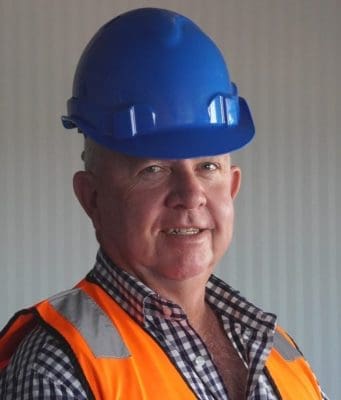
Pat Gleeson
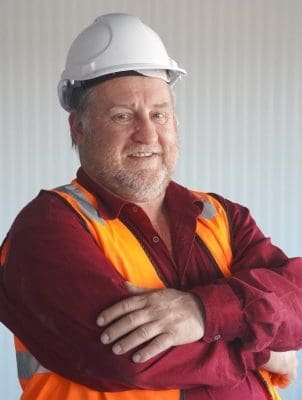
Dale Mesken
As the facility draws closer to a start, three key appointments have been made – all with strong career connections tracing back to the Oakey Beef Exports plant on Queensland’s Darling Downs.
After acting in an advisory capacity to the project over the past two years, former Oakey Beef Exports general manager Pat Gleeson will act in a general management capacity at the new Signature On-Farm facility. Mr Gleeson had 25 years at Oakey, including the last 12 as general manager of operations.
He will be joined at Moranbah by Dale Mesken, who has been appointed operations manager at the new plant. Mr Mesken spent 38 years at Oakey, including a lengthy period as operations manager.
Also joining the Signature On-Farm processing business is Jason Winchester, who will become the plant’s senior chiller assessor, Mr Winchester spent 16 years at Oakey, mostly as a chiller assessor.
Further positions for management and operations staff will be advertised shortly, and the Signature Beef business is planning an open day for prospective staff in early October.
Specialist Wagyu live exporter role for former feedlot GM
Experienced feedlot and Wagyu supply chain manager, Steve Martin has joined Edwards Livestock Co, as business development manager.
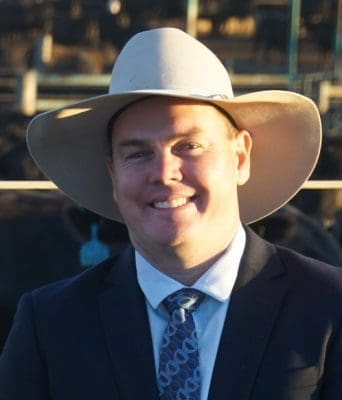
Steven Martin
As reported in an earlier People on the Move column, Mr Martin finished up earlier this year after six years as general manager of feedlot operations with Stockyard’s Kerwee feedlot.
Edwards Livestock, owned and operated by Matt and Alice Edwards at Devon Park Queensland, is a specialist live exporter servicing Australia’s long-standing Japanese Wagyu feeder cattle trade, which started 30 years ago. The business now ships about 10,000 cattle each year, marketing Wagyu cross feeders directly to their Japanese distribution partners and receiving full Japanese graded carcase results. A truly vertically integrated wagyu supply chain, the business now has strong relationships across Australia encompassing forward supply breeding agreements, company owned breeding herds, feedlot finishing programs and branded beef sales.
To capitalise on this supply chain strength, Mr Martin will be looking to develop further strategic long-term alliances, geographically spread across the Australian east coast, in breeding, backgrounding and feedlot operations. “Our annual cattle turnover is around 30,000 head producing the highest quality Wagyu cattle every month of the year, backed by decades of industry experience and performance data,” he said.
His role will be to develop the proven industry relationships, collaborative feedback, and corporate governance systems that have created one of the country’s most diversified Wagyu supply chains.
“We can offer an end-to-end option for wagyu breeders marketing genetics, feeders of any weight and sex as well as transport. From genetic direction to slaughter feedback our business can provide and outlet for all farm production,” he said.
Mr Martin will continue representing the feedlot industry as a councillor on the board of the Australian Lot Feeders Association, where he currently chairs the Trade and Market Access committee. He also sits on ALFA’s R&D, feedlot management, animal health and welfare, and environment committees and the ALMTech steering committee.
New CEO for AusMeat

Stephen Crisp
As highlighted on Beef Central earlier, the red meat industry regulator AusMeat has appointed former Sheep Producers Australia chief executive officer Stephen Crisp as the organisation’s new chief executive. He replaces long-serving operations head, Ian King, who retires later this year having led AusMeat’s operations almost since the body’s inception. He left the New Zealand meat processing industry to become AusMeat’s second CEO back in 1992.
Mr Crisp comes to the position from his current role as Sheep Producers Australia chief executive officer.
“Stephen’s appointment concludes an exhaustive search where, with the help of external consultants, more than 100 candidates were assessed. Stephen was the very best of the many excellent candidates who were considered,” AusMeat chairman Allan Bloxsom said.
Prior to his current term with SPA, Mr Crisp had various senior roles in agribusiness and the food supply chain.
New CEO for Kimberley producer body
The Kimberley Pilbara Cattlemen’s Association has appointed Mick Sheehy as the representative body’s new chief executive officer.
Mr Sheehy is well known and respected across the Northern Australian cattle industry, having worked throughout the supply chain across WA, the NT and Indonesia.
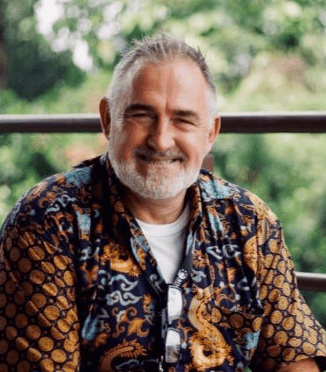
Mick Sheehy
KPCA chair David Stoate welcomed the appointment, saying that Mick was chosen from a strong field of applicants.
“Mick brings not only a wealth of experience in the Northern cattle industry, from a diverse range of roles as a station manager to corporate CEO, but also respect and relationships more broadly, including with key people in Indonesia. This will be particularly valuable to the KPCA and the broader Northern cattle industry at a time of COVID related market risks in Indonesia,” Mr Stoate said.
Mr Stoate thanked and acknowledged the efforts since March of Grey Mackay as interim executive officer and Emma White, former KPCA CEO, in her capacity as a strategic advisor to KPCA.
“Both Grey and Emma have provided significant support to KPCA during the transition period over the last few months. Grey and Emma will also continue to provide support to Mick in the initial couple of months from his commencement and until he relocates to Broome in October, which will ensure continuity and that a comprehensive handover can occur,” Mr Stoate said.
Australian Agritech Association hires its first CEO
Australia’s peak body for agritech, the Australian Agritech Association, recently announced its first significant executive leader, welcoming Emma Coath as interim chief executive officer.
Association chairman Andrew Coppin said the board was delighted to have a leader with Emma’s pedigree taking the reins.
“Emma’s real-world experience as director of Rocket Seeder Ltd in Australia and as co-Founder of GROW AgriFoodTech accelerator in Singapore puts her in the box seat to drive AusAgritech forward,” he said.
Emma has been involved in the agriculture and food sector for the past 25 years in both the public and private sectors and brings a wealth of expertise to the role. As Interim CEO, she will be tasked with leading the association as it looks to build a world-leading agritech industry in Australia.
The appointment of the industry’s first CEO is a signalling of intent from the association as it looks to galvanise the industry.
Agtech company appoints advisory board
Fast-growing agtech start-up, Black Box Co, has brought a team of knowledgeable industry leaders together to form a board of directors. Joining founders Shannon Speight and Emma Black on the board will be industry identities John McKillop, Angus Street, Prue Bondfield, Jim Hunter, Gerard Davis and Shane McManaway.
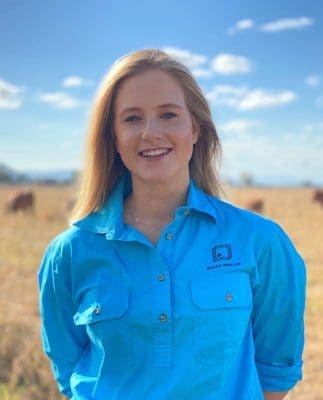
Shannon Speight
The board brings an extensive range of experience and industry knowledge from across the supply chain, including beef and sheep production, lotfeeding, processing, live export and meat exporting. With experience in the commercialisation of technology from start-ups to multinationals and a strong understanding of technology systems, all have close affiliations with the Australian and New Zealand agricultural Industries.
Black Box Co is a North Queensland-based agtech company that analyses data with the aim of helping producers improve their on-farm productivity, through transforming raw animal production data into decision-making information.
“Black Box has grown rapidly and we have had continued support from partners within the beef industry. We are fortunate to now bring on this all-star team to ensure we continue this growth and solve this problem for the industry,” co-founder Shannon Speight said.
The recent winner of the prestigious ‘Pitch in the Paddock’ agtech event at Beef 2021, Blackbox recently reached a major milestone, with production data on one million cattle now recorded on the database. Black Box has recently raised $1.5 million from investors in an oversubscribed seed funding round. Investors include existing customers, agribusiness companies and high net worth individuals in the beef industry.
NT cattleman earns Outback Major Grant
Cattle producer Jay Mohr-Bell from Mathison Station in the far north-west of the NT is the Connellan Airways Trust’s Outback Major Grant’s 2021 recipient. Mr Mohr-Bell, of Pancho Beef, will receive a $50,000 grant towards a pilot communications project.
The Outback Major Grant was introduced by the Trust this year to support the advancement of the outback through innovative technology and communications. Mr Mohr-Bell’s project aims to install, test and report on an experimental private communications network exploring different technologies for areas without mobile phone service.
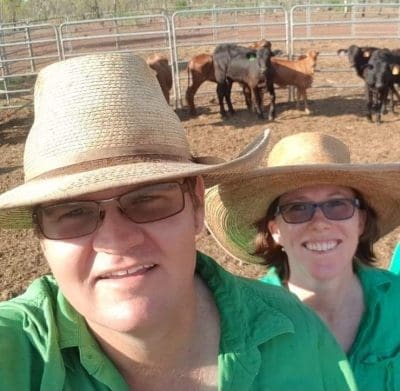
Jay and and Rebecca Mohr-Bell on Mathison Station
Mr Mohr-Bell has been pursuing a solution to this ongoing challenge for ten years, leading to his involvement in several remote communications committees.
“This type of technology has yet to be tested in these conditions. No one really knows if a private communication network with higher capacity and range is the practical, reliable and cost-effective method for remote data collection in harsh environments,” he said.
“Data collection, analysis and communication is core to almost every new agricultural innovation and technology which has the potential to dramatically enhance the productivity and efficiency of extensive agricultural systems. But they require communication networks to deliver data back to a central point for analysis and action.”
“Existing communication systems via satellite, UHF and point to point wifi are unreliable, costly and limiting. Areas with 3/4/5G mobile coverage can avoid many of the issues, however most of remote Australia does not have access to this coverage. We hope this pilot will provide a long-term solution that other people in the industry can use in the future,” he said.
With the support of the grant, the project aims to determine the costs of constructing and maintaining the network, identify practical implementation and operational challenges and provide a demonstration site for other potential users of similar systems.
Due to the generosity of many and the efforts of EJ (Eddie) Connellan, the Trust continues to support people in Outback Australia through a variety of grants and scholarships.
Four young Aussie livestock stakeholders chosen for global summit
Animal heath company Bayer has selected four young Australian livestock industry leaders among 100 delegates from more than 40 countries, to make up the 2021 Youth Ag Summit cohort this November.
The global forum and biennial conference provides young leaders between 18 and 25 with a passion for sustainable agriculture, the opportunity to learn and collaborate with others on solutions to issues challenging food security across the globe.
This year’s delegates were selected from 2000 applicants representing 100 countries.
Sydney livestock market analyst Lucy Noble is one of the four Australian nominees.
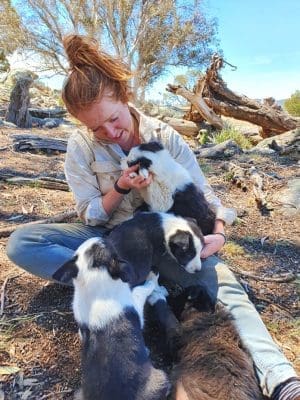
Lucy Noble
Lucy was recognised for her work with Meat & Livestock Australia in educating consumers through better marketing and tailored consumer interest for less desired cuts of meats. She believes there is a lack of utilisation for less desired cuts of meats and there should be increased awareness about where meat products are sourced.
Lucy was born into agriculture, coming from a NSW family farm where she developed a passion for sustainability and livestock production. She studied Animal and Vet Bioscience at the University of Sydney, and got involved in paid and volunteer work in the South Pacific and south-eastern Africa, she then went onto complete her honours project on African Swine Fever
She is currently working as a market analyst for the National Livestock Reporting Service for MLA and believes there is a lack of understanding that surrounds livestock production and the hidden value of under-utilised animal products
She believes there is space for better marketing to tailor consumer interest for less desirable meat cuts.
The Summit will bring together a community of young global leaders championing sustainable agriculture and food security. These youth leaders are working to bridge the understanding gap between those who produce and consume food.
From station hands to PhD candidates, Australia’s delegates are set to learn from the best in the business at the two day virtual forum.
Delegates will also work with the UN Sustainable Development Solutions Network and Babele on a 10-week Youth Ag Summit University program following the forum, with mentoring from industry leaders, farmers, and YAS alumni
Joining Lucy as Australian representatives at the 2021 Summit will be University of Sydney PhD candidate Cara Jeffrey, La Trobe University PhD candidate Dylan Male and station hand, Meg Kennett. Here’s a brief snapshot on each:
Dylan Male, PhD candidate in Melbourne
Raised on a farm near Wagga Wagga in regional NSW, Dylan Male developed a love for the land from an early age. Through this upbringing, he witnessed firsthand the many challenges facing the agricultural sector i.e., drought. As a young person, Dylan felt powerless to do anything. However, he soon realised that he could pursue a career where he could provide solutions to overcome these challenges.
This led to Dylan completing a Bachelor of Agricultural Science (Honours) at Charles Sturt University. Throughout this degree, Dylan was able to strengthen his scientific knowledge and understanding of some of the complex issues facing agriculture. He soon developed an interest in agricultural research through employment with the NSW Department of Primary Industries, which involved working with wheat and canola field experimental trials.
As part of his degree, Dylan undertook international study and work mobility experiences to the Pacific including the Hawaiian Islands, Papua New Guinea (PNG) and the Solomon Islands. This provided Dylan with insight into Indigenous agricultural systems and the intrinsic connection Indigenous people have with the land. His honours research in PNG investigated the biological control of sweet potato pests, which strengthened Dylan’s passion for research and food security.
Dylan has now commenced his PhD studies at La Trobe University. His project is being led by the Dja Dja Wurrung (Djaara) people of central Victoria and is investigating the agronomy of a native perennial grass species. The research aims to support Djaara people in their vision to return grass to the landscape with the hope it can contribute towards the healing of country and provide economic empowerment to First Nations People through the production of high value seed and grain.
Cara Jeffrey, PhD candidate in Sydney
Cara Jeffrey is a Sydney-based PhD student with a background in marine biology and aquaculture and a passion for genetics. She studied at James Cook University in Far North Queensland for both her undergraduate degree in marine biology and her post graduate studies. During her post graduate studies, she worked with pearl oysters researching ways to make the industry safer by developing a method to extract tissue for genetic analysis and collective breeding in a way that didn’t harm the oysters.
After completing her studies, Cara worked as a technical assistant managing a range of different experiments for nine months in Queensland before moving to Sydney to start her PhD. Her current area of study looks at the impact of heat on chickpeas.
She aims to provide insight to breeding companies and farmers so they can produce a more resistant and heat tolerant chickpea crop, taking data from the DNA of the different breeds to discover which section breeders should target to produce a more resilient and reliable crop. Cara has conducted commercial field trials in Narrabri NSW and Kununurra WA, before setting up glasshouse trials in Sydney.
Meg Kennett, Station Hand, Walcha NSW
Meg Kennett grew up in Harden, NSW frequently visiting and working on the family farm in Boorowa, NSW After leaving boarding school in 2017, Meg took a gap year contract mustering cattle across 15 different stations around the Northern Territory and Kimberley’s mustering, branding and drafting cattle and loved it so much she came back for a second year.
Growing up on a farm, Meg saw firsthand the effects of drought and the hardships of living on the land in dry time. This sparked her desire to find ways to use resources more efficiently and led to an interest in regenerative farming. Meg reached out to the Hudgins family in Texas, USA, to learn more about how they breed Brahman cattle and to work on an intensive cell grazing operation. After just five weeks of her year-long overseas journey, the COVID-19 pandemic arrived, and Meg had to cut her trip short.
When she returned to Australia, Meg spent some time driving a truck for the development of a local wind farm. Currently Meg is working as a station hand on a 12,000 acre composite sheep and Angus breeding farm in Walcha, NSW, while also undertaking a pasture and sheep management course.
Meg is passionate about advocating for agriculture. While involved in a livestock leadership course run by the livestock collective, she was inspired to discover a direct way to tell the stories of the land to Australia’s urban population that branched out from social media. Through researching alternative communication methods, Meg stumbled upon a blog written by Lucy Moore about a supermarket cinema, where videos of farmers caring for their animals and growing crops are envisaged to be placed alongside the product in the supermarket. The blog explained this would help educate younger people about their food source and showcase Australian farmers, supporting the agriculture industry and helping bridge the gap between product and plate, city to country.
New AI sales rep joins the industry at the right time
Genetics Australia’s new beef sales representative for Victoria, South Australia and Tasmania, John Gommers, says he’s coming on board at the right time.
“It’s an exciting time to be in agriculture with cattle prices at an all-time high,” he said. “It’s extremely strong with a lot of optimism – everyone you talk to is really up and about. We’re seeing the elite top-end animals push into another price bracket,” he said.
In his new role, Mr Gommers will emphasise soundness and longevity in breeding cattle.
“One of the main things commercial and stud breeders need to be mindful of, is making sure the structural integrity is there, which leads to cows being able to stay in the herd for longer, and bulls being able to work for more seasons,” he said. “Both commercial and stud sides of the industry will want to, within reason, push the envelope and try to better their bottom line when things are going well, and you need to have genetics with the right performance data, to bring this to reality.”
His interest in the field has taken him around Australia and 10 times to North America and he brings that experience and passion to his new role as Genetics Australia’s beef sales role.
“I’m a massive genetics person, you could say I’m a bit fanatical about it,” he said. “I’ve done 10 trips to the US in the last 20 years looking at A.I. sires, herds and cow families and trying to get the best understanding of the Angus breed, and I’ve done the same sort of groundwork in Australia.”
His research aimed to help his family’s Stoney Point Performance Angus stud in South Australia to make the best decisions in bringing genetics into its herd, but it has given him a data bank of knowledge that can help the broader industry. Having also worked closely with the late Simon Coates from Sumo Wagyu over the past five years, his understanding of Wagyu genetics is first rate.
Australian genetics can match anything. “We’re breeding some of the best cattle in the world,” he said. “Especially in the last five to 10 years, it is becoming more apparent that the Americans and Canadians, and now Europeans recognise we produce seedstock at a very high level.
“As an industry, we’re very particular about getting the fundamentals of the cattle right and that’s one of the main reasons there’s an upsurge of interest from overseas for the export of Australian genetics.”
